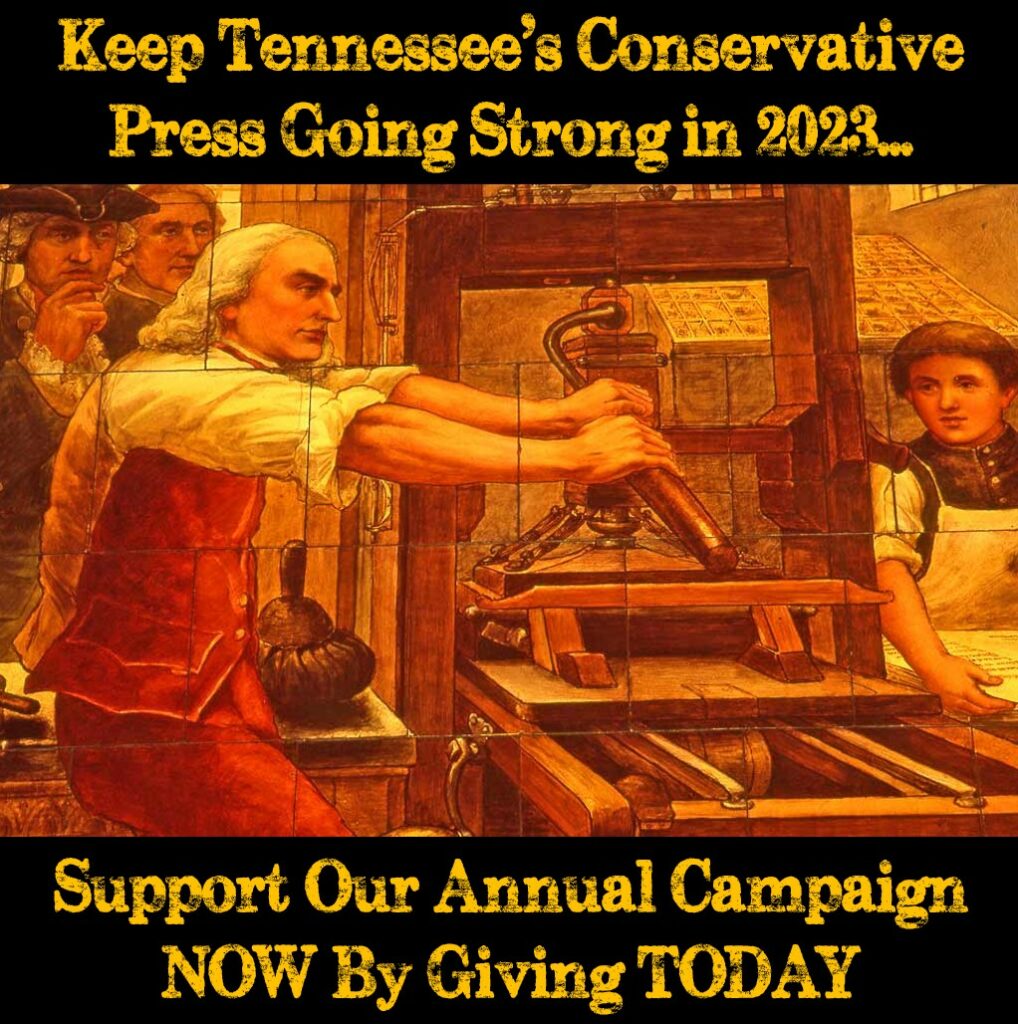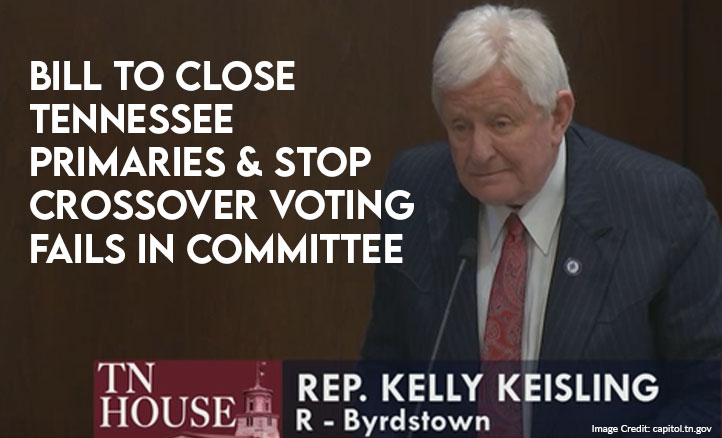*** Update 3.9.23 – The article has been updated to include the Aye votes from Reps William Slater and Greg Martin. ***
Image Credit: capitol.tn.gov
The Tennessee Conservative [By Paula Gomes] –
A bill giving the General Assembly a second chance this legislative session to heed the will of Tennessee voters regarding closing the state’s primaries failed in the House Local Government Committee yesterday.
After an hour of debate, including members of the public speaking for and against the bill, committee members were asked for a voice vote on House Bill 1045 with the majority counted as voting Nay.

The Tennessee General Assembly website states that Representatives Jeff Burkhart (R-Clarksville-District 75), Clay Doggett (R-Pulaski-District 70), Jerome Moon (R-Maryville-District 8), Jay Reedy (R-Erin-District 74), Tim Rudd (R-Murfreesboro-District 34), and Robert Stevens (R-Smyrna-District 13) requested to be recorded as voting Yes.
The Tennessee Conservative reached out to the committee members whose votes were not recorded directly after the vote to ask how they voted.
Representatives Kevin Raper (R-Cleveland-District 24), William Slater (R-Gallatin-District 35) and Greg Martin (R-Hixson-District 26) replied to let us know they voted in the affirmative for the bill while Representative Dwayne Thompson (D-Cordova-District 96) replied that he voted No.
Representative Slater also related to us that he believes that the Aye votes were in the majority, but Chairman Crawford gaveled that the bill failed regardless.

Unless we hear otherwise, we can assume that Committee Chair and Vice-Chair Republican Representatives John Crawford (R-Bristol/Kingsport-District 1) and Dave Wright (R-Corryton-District 19) also voted Nay along with Republican Representatives Rebecca Alexander (R-Jonesborough-District 7), Dale Carr (R-Sevierville-District 12), Michael Hale (R-Smithville-District 40), Esther Helton-Haynes (R-East Ridge-District 30), and John Holsclaw (R-Elizabethton-District 4).
*** Note: We will update the No votes above as we hear from the committee members. Committee members are encouraged to contact the author paula@tennesseeconservativenews.com or news@tennesseeconservativenews.com to apprise us of your votes that will be included in an article update. ***
When Representative Bryan Richey’s bill (HB0405) to close primaries failed in the same committee last week by voice vote, Representatives Clay Doggett, Greg Martin, Jerome Moon, Jay Reedy, Tim Rudd, and Robert Stevens all voted in favor of the bill. Richey related to us that Representatives Kevin Raper, Rebecca Alexander, and Jeff Burkhart also voted yes.

House Bill 1045 (HB 1045) sponsored by Representative Kelly Keisling (R-Byrdstown-District 38) was intended to stop crossover voting in primary elections. All voters would have to declare party affiliation the next time they voted in a primary and would then be ineligible to receive a ballot in a primary election for the opposite party. An amendment to the bill would have allowed voters registered as Independent to vote in primaries, something that is technically illegal under current law, although unenforced. In addition, the bill only made it harder to crossover vote as anyone could have registered as the opposite party 30 days before a primary to vote in that primary election.

About the Author: Paula Gomes is a Tennessee resident and reporter for The Tennessee Conservative. You can reach Paula at paula@tennesseeconservativenews.com.



6 Responses
There is nothing more important than this legislation for conservatives because there is nothing standing in the way of conservative electoral success than the 15% or so Democratic votes in Republican primaries that go to centrist/tepid conservative candidates running conservatives.
We already know about the Open Primary Six who must be targeted for defeat in the 2024 Republican primary. I anxiously await news as to who to add to that list.
Thanks for publishing the names. The “Voice Vote” on a bill like this is a sneaky way to protect the RINO’s who want crossover voting. I think you’re correct that > Committee Chair and Vice-Chair Republican Representatives John Crawford (R-Bristol/Kingsport-District 1) and Dave Wright (R-Corryton-District 19) also voted Nay. Shame on them. When they are up for re-election, please let us know. If we can’t vote against them, maybe we can donate to their conservative opponent.
Which is exactly what all conservatives should do David. For me there’s no “maybe”! I’m even now saving money to donate to the primary opponent(s) of the Open Primary six
Why I DESPISE TNGOP and the RINO pukes they allow to run as Republicans.
They’re KILLING our State.
So William Slater (R-Gallatin) did bestir himself to show up and vote for this bill, how nice. At least the folks in Gallatin have a part-time representative who happens to show up and vote correctly some of the time. But I see that the Open Primaries Six now has tentatively become the Open Primaries Eight with the addition of Rebecca Alexander (R-Jonesboro) and Michael Hale (R-Smithville) to the list.
The Open Primaries Eight are asking conservatives. “OK, what you gonna do about it.” I hope we are all prepared to provide an answer to those Eight who have primary opponents in 2024.
These “primary” elections are not constitutionally required. They are no more than private political clubs choosing their nominee. Only the Big Two parties utilize publicly funded facilities and equipment to choose their club nominees. Your votes don’t necessarily count in these primaries and the parties can (and have) break their own bylaws and override the voters if they so choose.
It is because these private political clubs take public money to conduct their primaries that they cannot pick and choose which part of the public they want to deny access. They both could easily “close” their primaries by not using public funds to conduct them (like every other political party). Getting the state involved in regulating private club memberships is a bad idea. TNGOP should bankroll their primary (and limit it to their members if they want) instead of asking Tennessee taxpayers to fund it for them.